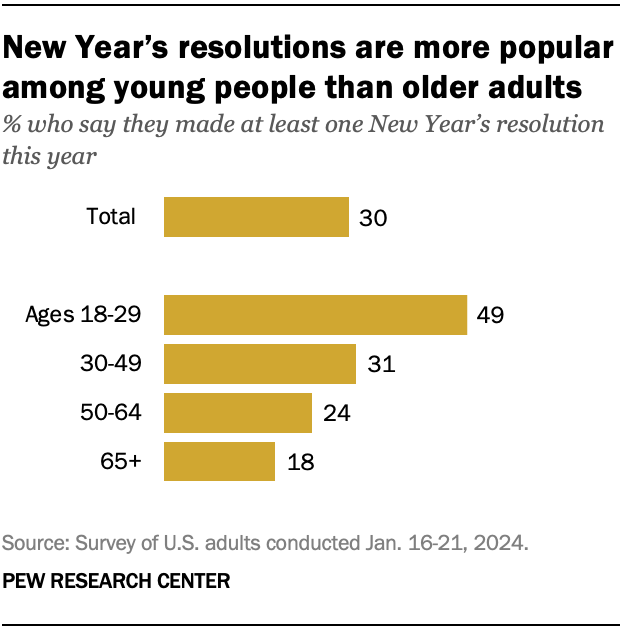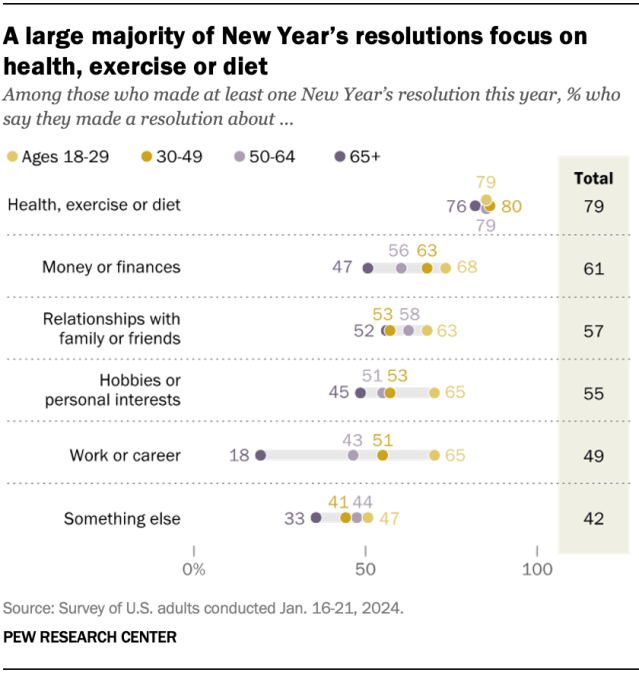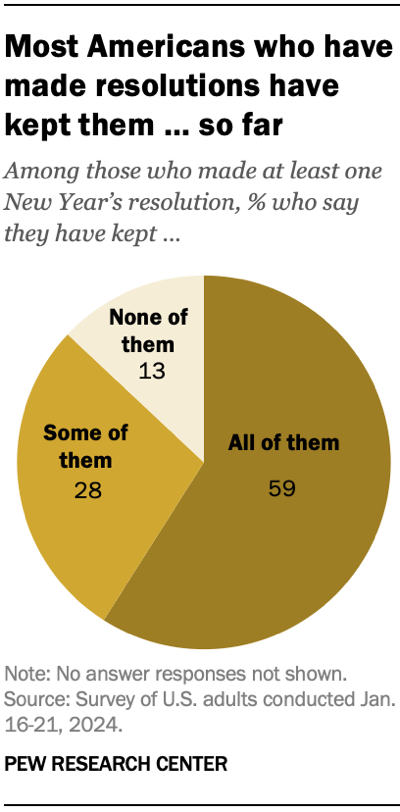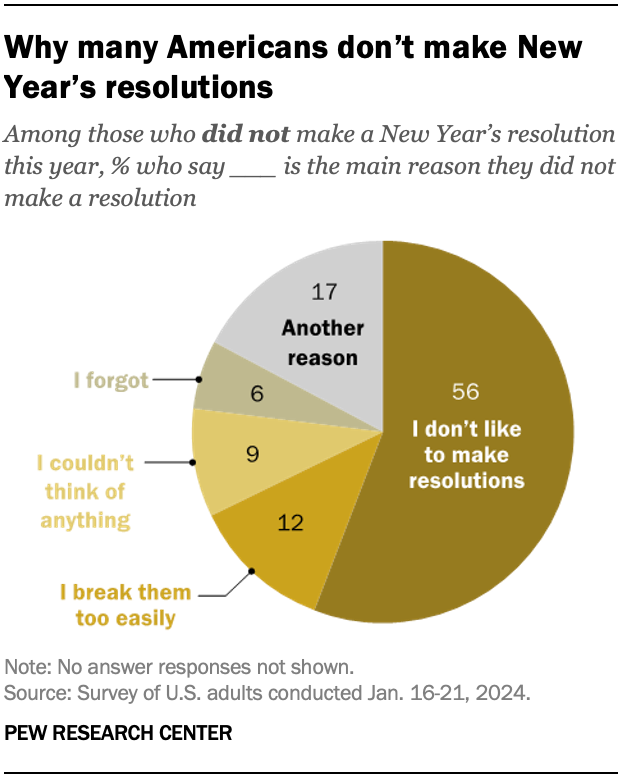
It’s the time of year when New Year’s resolutions are made – and sometimes broken.

Three-in-ten Americans report making at least one resolution this year, with half of this group making more than one, according to a new Pew Research Center survey.
Nearly a month into the new year, the survey also finds that most people who made resolutions have stuck with them, although 13% say they have not kept any of them.
Here are some key facts about the Americans who make New Year’s resolutions and why they make them, based on the survey of adults conducted Jan. 16-21.
Pew Research Center included these questions about New Year’s resolutions as part of a larger survey on Americans’ views of the country at the start of the new year. For this analysis, we surveyed 5,140 adults from Jan. 16 to Jan. 21, 2024. Everyone who took part in this survey is a member of the Center’s American Trends Panel (ATP), an online survey panel that is recruited through national, random sampling of residential addresses. This way nearly all U.S. adults have a chance of selection. The survey is weighted to be representative of the U.S. adult population by gender, race, ethnicity, partisan affiliation, education and other categories. Read more about the ATP’s methodology.
Here are the questions used for the analysis and its methodology.
Young adults are most likely to make New Year’s resolutions
Nearly half (49%) of adults ages 18 to 29 say they made at least one resolution this year, by far the largest share of any age group.
About a third (31%) of those ages 30 to 49 say they made a resolution, while only about a fifth (21%) of adults 50 and older have done so.
There are only modest differences in who makes resolutions by race or ethnicity, gender or partisanship.
Health and wealth are popular topics for New Year’s resolutions
Across all age groups, sizable majorities of those who made resolutions this year say their goals focus on health, exercise or diet.

Overall, 79% say their resolutions concern health. Smaller but still sizable shares made resolutions about money or finances (61%), personal relationships (57%), hobbies or personal interests (55%), or work and career (49%).
Younger Americans are more likely than older Americans to make resolutions about each of these topics, apart from health. This is especially the case for work and career: 65% of those under age 30 who made resolutions say they made one related to their work or career. This is by far the largest share of any age group.
Some Americans are early backsliders on their New Year’s resolutions

Less than a month into the new year, a large majority of those who made resolutions (87%) say they have kept at least some of them.
About six-in-ten adults who made at least one resolution (59%) say they have kept all of them so far, while 28% say they have kept some of them. Another 13% say they have kept none of them.
There are only modest demographic differences when it comes to who has broken resolutions and who has stuck with them so far.
Many Americans just don’t like making New Year’s resolutions

Of the 70% of Americans who did not make any New Year’s resolutions this year, a majority (56%) say their main reason for not doing so is they simply do not like to make resolutions.
About one-in-ten (12%) of those who didn’t make a resolution say they break them too easily. Nearly as many (9%) say they couldn’t think of a resolution to make, while 6% say they forgot to make one this year. Another 17% say they have another reason for making no resolutions.
Note: Here are the questions used for the analysis and its methodology.